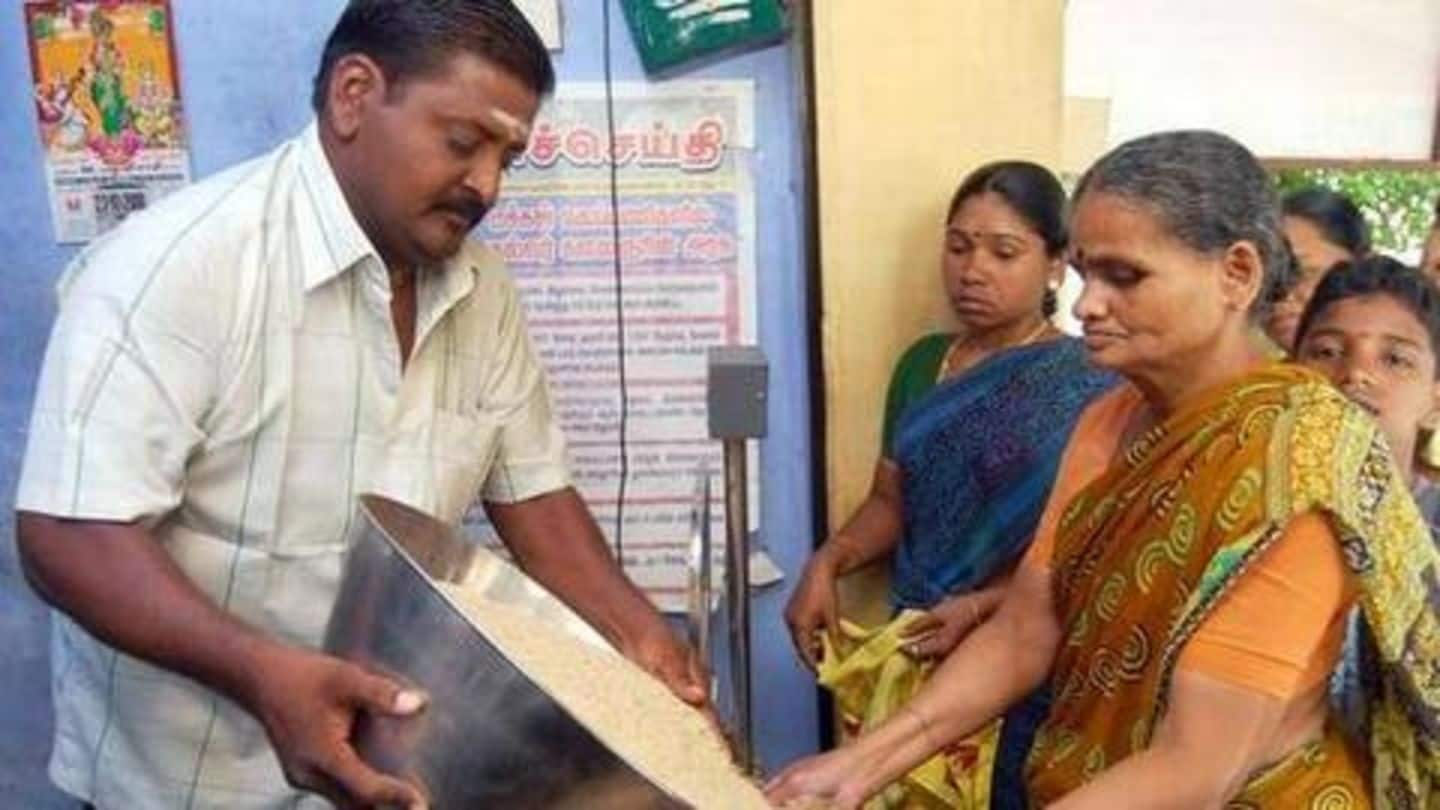
Explained: What is Centre's 'One Nation One Ration Card' plan
What's the story
The Centre, under Prime Minister Narendra Modi, is taking concrete steps to minimize corruption and ensure welfare schemes reach the last person in the queue. Taking this same thought forward, Centre is launching 'One Nation One Ration Card' plan which will benefit those who depend on government for food, making lives of millions easier. But how will it work? Here's all about it.
Ration cards
Though ration cards help poor, they sometimes add to woes
The underprivileged in this country get food items like rice, wheat, oil, and pulses at subsidized rates through ration cards. These cards also serve as identity proof. However, when the poor relocate to another state, mostly in search of other means of livelihood, getting ration becomes difficult, as their cards are valid for designation centers only. This new policy plans to change that.
IMPDS
Centre plans to use technology to help poor
So, how does the Centre plan to implement the scheme? The answer is an online database called Integrated Management of PDS (IMPDS). States like Andhra Pradesh, Gujarat, Haryana, Jharkhand, Karnataka, Kerala, Maharashtra, Rajasthan, Telangana, and Tripura, already have a functional IMPDS wherein beneficiaries can get ration from any district. Soon, this process will be rolled out for the rest of the nation.
Information
The new scheme will keep a check on corruption
There are several benefits of introducing 'One Nation One Ration Card'. For one, it will allow beneficiaries, especially migrant workers, to obtain ration from any shop. This, in turn, will reduce corruption. The new plan will also ensure no one holds more than one card.
Meeting
When will the scheme be rolled out? Soon, said Paswan
The decision related to rolling 'One Nation One Ration Card' scheme was taken at a meeting, chaired by Union Minister for Consumer Affairs, Food and Public Distribution Ram Vilas Paswan, on Thursday. Food secretaries and other officials of state governments, Food Corporation of India (FCI), Central Warehousing Corporation (CWC) and State Warehousing Corporations (SWCs) also attended the meeting. Paswan hoped the process would be completed within a year.
Requirement
Paswan underlined PoS machines are needed for scheme's success
Paswan expects to complete the formalities in one year. He underlined that for the scheme to be implemented, all PDS shops should have PoS (Point of Sale) machines. "PoS machines are available at all PDS shops in various states, like Andhra Pradesh, Haryana, and a few other others, but 100% availability is required to provide the benefit across the country," he added.
Plans
Currently, Food Ministry is focusing on Andhra and Telangana
Moreover, the Food Ministry highlighted that the Department of Food and Public Distribution is working hard to achieve the objective of 'One Nation One Ration Card' in Telangana and Andhra Pradesh. Other states have assured to implement IMPDS at the earliest. Further, Paswan said that 612 lakh tonnes of food-grains is stored in warehouses of FCI, CWC, SWCs and private godowns for distribution annually.